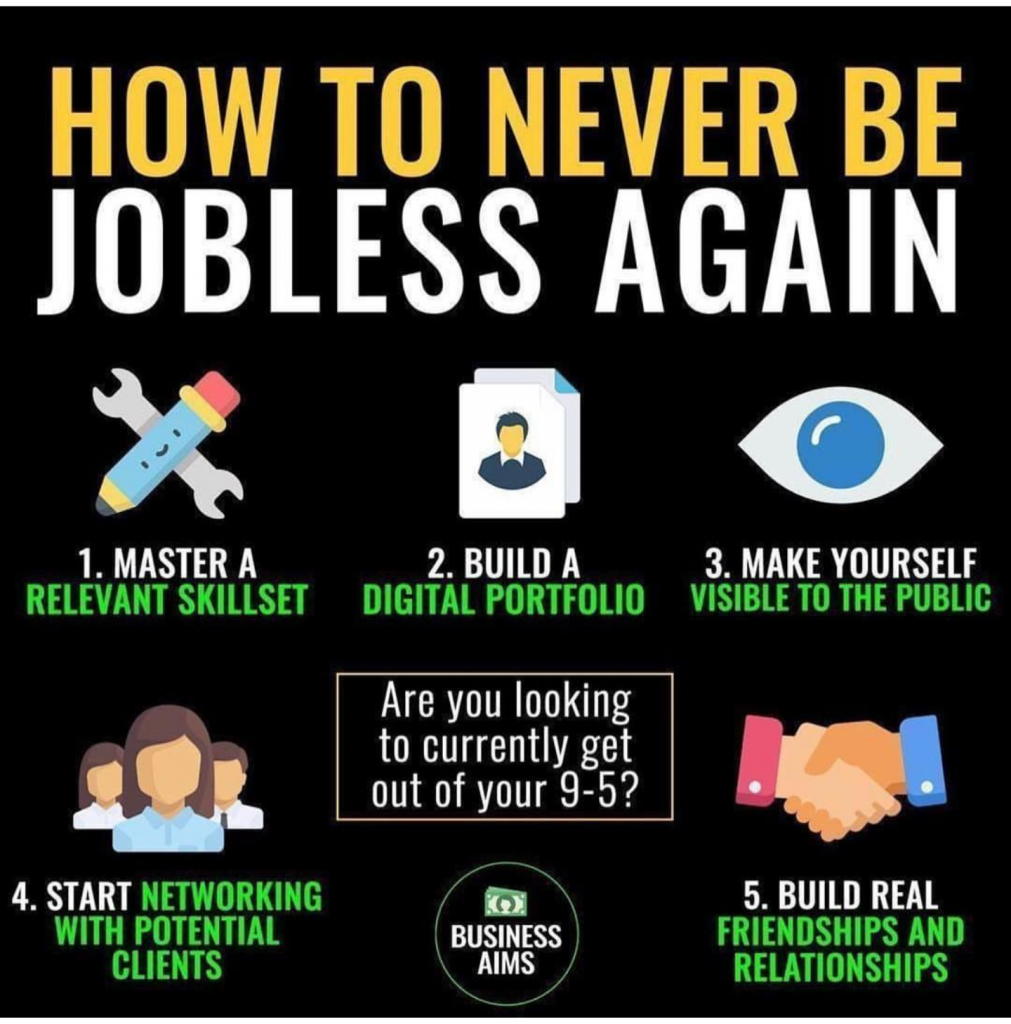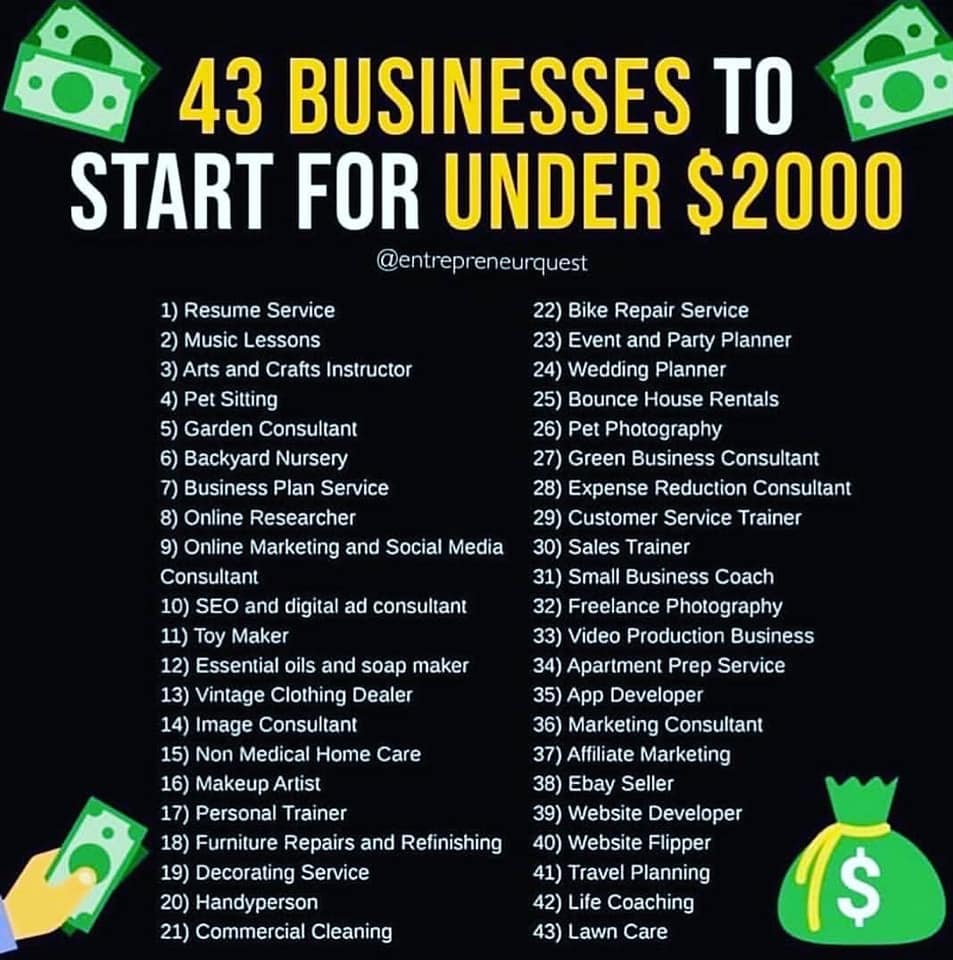
By James Chittenden
If you just lost a corporate job, or are about to, we are sorry for your misfortune. If this has been your career and you knew little else, this is a tough time. It is even worse if you have a family, and people depending on you. You are feeling pressure, rejection, and anxiety all at once.
At the same time, you are now free of burdens and problems you had before. You were waiting for retirement, because that looks like living. But you also wondered if you would still have any vitality left or if you were spending it all on this job. Does life only begin after 60?
You looked at senior colleagues and it is clear that the life ran out of them a long time ago. You worried that you too would watch your life force slowly drain from you.
Perhaps you experimented with side businesses, real estate, or other sources of income streams. But you were always tired at the end of the day, so you never gave these ventures the time they deserved.
Even more distressing are internal problems that remain unresolved. But there is good news.
Maybe now you are gaining some clarity and realizing that the solutions to your problems were never out there. The solutions are in you. In fact, they always were. The knowledge was always yours. You just lost it in the daily fog created by the unnatural feeling of having to dance to someone else’s music.
You can now say goodbye to office politics, bad management, and the upper limits on your income that come with an average salaried job. Best of all, you are now unleashed to do what you want to do.
You’ve also got skills and other advantages from your time on the job.

“But I’ve never owned a business and have no idea which one to start”
Nobody can tell you what to do or why, or set this direction for you. But this eight minute video is designed to help you isolate it for yourself.
“But I’m broke and starting a business is too expensive.”
The possibilities for small businesses that can be started with little to no money are vast. And there are business skills that you or a partner may have that you can do, and therefore not pay someone else to do it.

“OK. I’m interested. What’s the plan?“
At first, the plan is…to make a plan. We have a simple formula for you. Sort the issues accordingly. Organize the challenges, questions and opportunities of your future business into the following areas:
Marketing, because it brings in the customers.
Operations, because it keeps your customers.
Finance, because it is the scoreboard.
Marketing brings in the customers. It is frequently misunderstood. It is more than advertising and sales. And digital marketing mystifies people. Yes, those things are of vital importance, but what good is advertising if it isn’t targeted properly?
Develop buyer personas. A buyer persona is a semi-fictitious representative of the person (or business) that has the problem that you solve, and can afford to buy from you. For example, if you are teaching girls’ gymnastics, your buyer persona might be the parents of girls between the ages of 6 and 17 who live within an eight-mile radius of your location, and have annual household incomes that exceed $50,000. If you need further clarity, HubSpot has a buyer persona generator that you can use. Your target market is made up of all of the possible customers who fit your buyer personas. Do not spend time or money marketing to people not in your target market, and who do not fit your buyer personas.
Promotion can be done through a variety of low-cost ways. E-mail marketing is a good tactic IF you have an online business. Public relations, if you have the skills, builds credibility that advertising cannot.
Finally, pricing is a marketing function. In order to be set properly, they must be high enough to pay the bills of the business, but low enough to be affordable by your target market. This free video will teach you.
Getting help with graphic arts, website design, branding, and so much else is far easier than you think. This same platform can itself become a side hustle leading to a nice business.
Operations keeps the customers. It is all of the systems necessary to run your business smoothly, pleasing your customers and generating steady revenue for the business. Detailed guidance is available to help you create great systems.
One popular side hustle is dropshipping. Dropshipping is a way to sell products that the seller does not have to manufacture or keep in stock. With a simple website or landing page, and some of the marketing methods listed above, you can sell a wide variety of goods that you don’t have to buy in advance or store. The sales fulfillment and shipping is handled by the dropshipping platform. For example, if you are interested in selling fashionable goods from Europe or the U.S., Spocket has a dropshipping system already in place. In one case study published by Spocket, a college student made over $200,000 in just three months through dropshipping.
InventorySource has a vast selection of products that you can sell via dropshipping.
E-commerce sites are easier than ever to build. Shopify is the leader in “drag and drop” websites, complete with the e-store of your making, that you can create at home. If you don’t have a product to sell and ship, they have an array of products to start and grow a business. It is about as close to an e-commerce “business in a box” that you can get. Prices start at $29 per month, and they offer a free trial.
This is all sounding great, but don’t forget to compensate yourself. You will need payroll services, health insurance, benefits, and even help staying compliant with employment law. Gusto is a popular platform that helps you run human resources and compensation like a much bigger company.
Do you need a toll-free number, or international phone service, all forwarded to your cell phone? There are options for that as well. You also need point of sale systems that generate reports of your sales, because that data will tell you if you are or are not on track. This helps you to refine your marketing.
Finance is the scoreboard. You don’t need an MBA to understand it. But you do need to know what your business will cost every month. This includes all of the compensation necessary to support your team, and yourself.
While planning for marketing, operations and finance is not in any particular order of importance, we mention it last. Why? Because when it comes to planning a business…
Never chase money before first solving a problem.
Get the operational part of the business planned as well as possible, and figure out exactly who your customers are going to be. Use a trusted business plan template to game it out ahead of time.
Business planning, while often a dry subject, is very beneficial exercise. Don’t approach it like a dreaded homework exercise. Planning your path to professional and financial independence can be exciting and will fully engage you into your business. It allows you to make your mistakes on paper instead of with real money, real assets, and real people. Write it first and foremost for yourself, but investors and lenders will, in all likelihood, want to see your business plan. For them, the plan needs to make a satisfactory case that they will be repaid.
There are many ways to obtain financing for your business. Most of them do involve a personal credit check of any owner of 20 percent or more of the business. Fundera has a cool comparison tool where you answer a few questions, including your estimated credit score. The site quickly gives you lenders who would be willing to work with you, without a credit pull, here.
Keep good books. The best managers have the information they need at their fingertips. It is a valuable part of your plan. The flows of money in and out of your business give you the insights you need to manage and grow the business effectively.
How did you do today? This week? This month? Finance is the scoreboard of your business.
When is the right time to incorporate?
A good rule of thumb is that when the business is ready to spend money and to earn money, that may be a good time to do it.
You will need business bank accounts, and you should set those up after you have settled on which business entity you want. For more on the differences between corporations and LLCs and the advantages and disadvantages of each, this free video is available for your use. There are formalities and expenses associated with registering your business as a corporation or LLC. Defer these expenses as long as possible.
In summary, plan the business, which is your plan to solve a problem for enough people that the business is properly supported. The plan should cover how you will market, operate, and finance the business.
If any of these areas are unworkable and not feasible, resolve them before proceeding. If they cannot be resolved, do not proceed.
OneClickAdvisor is available to answer your questions. For more information, contact us anytime.
Let’s get to work.

